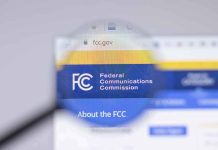
During the Trump administration, the Justice Department sought to scrutinize corporate DEI policies that might have discriminated against white and Asian American job seekers.
At a Glance
- The DOJ aimed to align DEI policies with Civil Rights laws to prevent racial discrimination.
- Trump’s administration targeted DEI initiatives through executive orders and potential legal actions.
- Project 2025 plans to oppose DEI advocates using governmental power.
- Companies have faced legal challenges resulting in rollbacks of DEI initiatives.
- Federal policies influence state and corporate actions, creating a ripple effect nationwide.
DOJ’s Focus on DEI Practices
The Department of Justice under President Trump explored various measures to question corporate DEI policies, which some argued placed white and Asian applicants at a disadvantage. This initiative aimed to align DEI policies with existing Civil Rights laws, counteracting any biases related to race-centered employment strategies. Legal experts, such as David Pivtorak, pointed out that the DOJ could employ tools like investigations and consent decrees to ensure compliance.
During Trump’s presidency, an executive order was signed to target “race and sex stereotyping,” challenging the foundational elements of diversity initiatives. However, President Biden rescinded this order soon after taking office, promoting racial equity and support for underserved communities instead.
Diversity, Inclusion, DEI, and Wellbeing In The Trump Era. Time for the DEI topic to focus on organizational strength. https://t.co/IcXFX9P0OL
— Josh Bersin (@Josh_Bersin) November 9, 2024
Corporate Backlash and Responses
Companies like Walmart scaled back on DEI initiatives following legal challenges highlighting reverse discrimination concerns. This shift was indicative of a broader reaction across industries where DEI practices were called into question for potentially favoring other minority groups over white and Asian job seekers. David Pivtorak emphasized the DOJ’s varied approaches to address such issues, including lawsuits and other remedies.
A myriad of companies and universities have faced critiques, with some institutions overcompensating in their DEI policies due to legal concerns. Moreover, “reverse discrimination” was cited as a reason for apprehension towards DEI practices, promoting discussions around potential changes needed in employment standards.
The Future of DEI Under Potential Future Administrations
Legal professionals and policymakers suggest that Trump’s second administration could redefine DEI policies, ensuring they do not undermine existing employment laws centered on meritocracy and fairness. David Pivtorak highlighted how companies might forgo DEI initiatives due to the non-financial benefits these policies often entail.
“From a cost-benefit perspective, companies may decide that the hassle of maintaining DEI is just not worth it, especially since these are not profitable endeavors but are mostly there to keep a small contingent of vocal activists satisfied,” Pivtorak said.
The implications of redefining DEI extend beyond the corporate sphere, potentially influencing state policies, foundations, and educational institutions. These shifts could lead to broader changes in inclusivity and merit-based employment practices across the nation.





